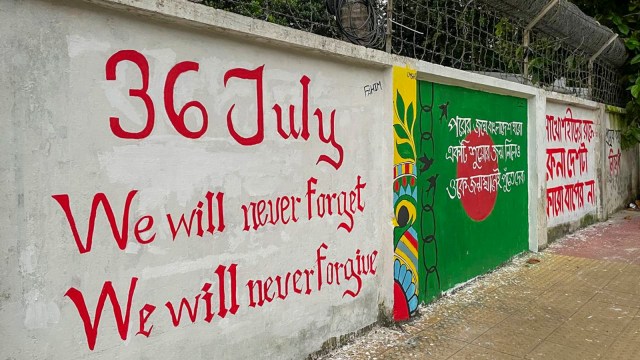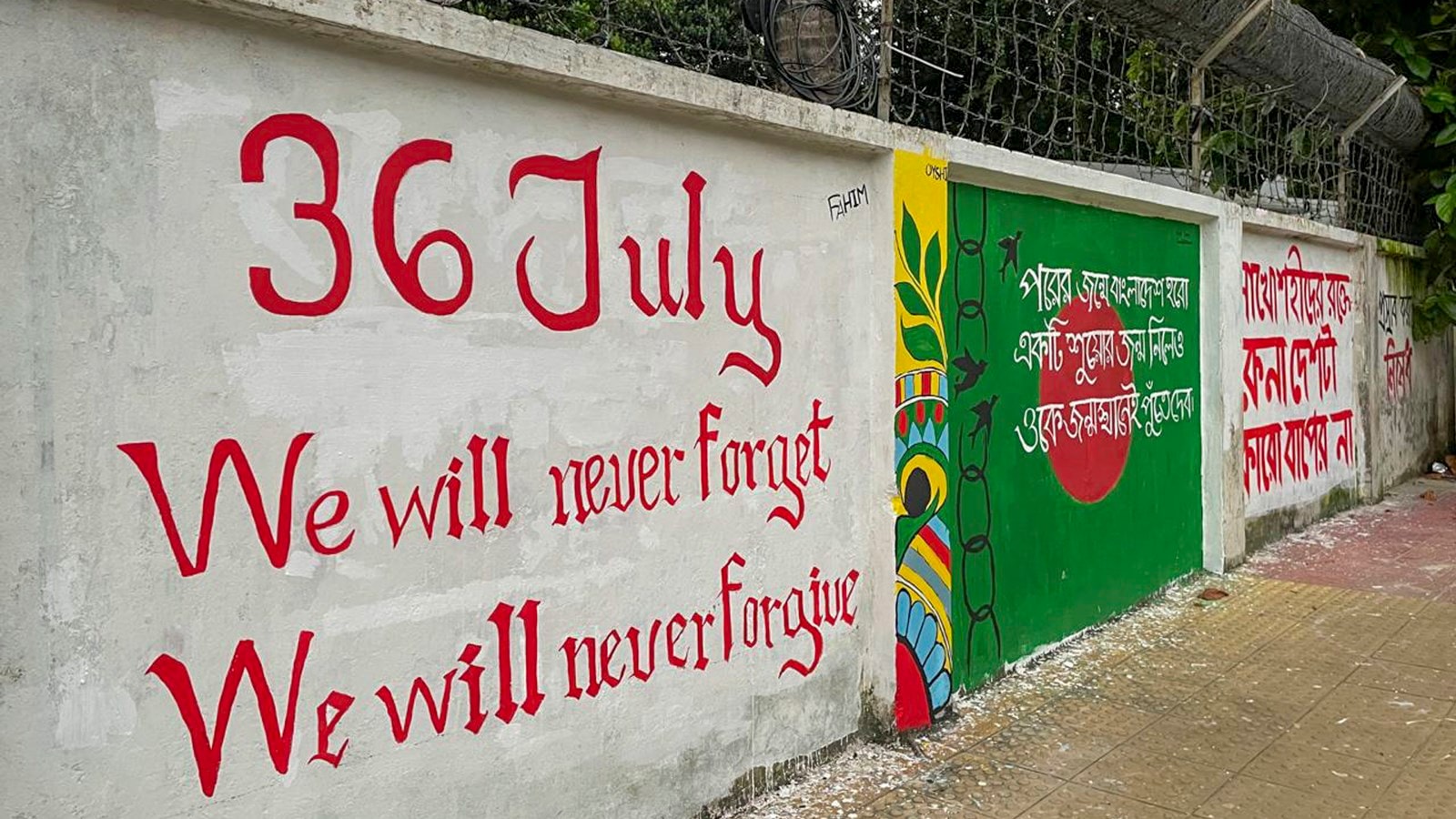
Noirajjo! Anarchy! It is difficult to find another term to describe the situation in Bangladesh after former Prime Minister Sheikh Hasina resigned and left the country on August 5. For four days, there was no government in Bangladesh, and no governance either. Beyond asking Sheikh Hasina to resign, the army has taken no leadership role, worried that any wrong step may call into question their future participation in lucrative UN Peacekeeping Operations.
Since August 5, the killing, burning, looting and destruction of strategic infrastructure bear an uncanny resemblance to the launch of Operation Searchlight by the Pakistan Army on March 25, 1971 (the starting point of the Liberation War). As in 1971, so in 2024, the targeted violence all across the country focused on members of the Awami League, Bangladeshi Hindus and other religious minorities, and on the secular-minded intelligentsia. In five days (between August 5 and 10), two organisations (the Bangladesh Hindu Buddhist Christian Unity Council and the Bangladesh Puja Celebration Council) recorded 205 attacks on religious minorities across 52 districts of the country. Places of worship have been desecrated. Statements by the Army Chief seeking to minimise the extent of damage are contradicted by the reports in the media and first-hand feedback.
An important objective of the systematic destruction seems to be the obliteration of all spaces representing the values inherent in the victory of the Awami League in the 1971 Liberation War. Ugly desecration accompanied the destruction of statues and landmarks associated with the Father of the Nation, Sheikh Mujibur Rahman, including in cantonment areas. His home in Dhanmondi was burnt down. The Liberation War memorial in Mujibnagar where the Proclamation of Independence took place on April 11, 1971, has been destroyed, as documented in Prothom Alo. Culture and the arts were also targeted, through vandalising local branches of the Shilpakala Academy (Arts and Crafts Centres), beating to death a young film star, Shanto Khan, and his father.
The Indian Cultural Centre in Dhaka and a well-known Indian restaurant were burnt to the ground. In the face of direct threats to India’s security interests, all non-essential staff has been withdrawn from Bangladesh, and all visa-issuing operations have been suspended.
Who are the likely perpetrators of these ghastly incidents? Certainly not the students. Given the similarity in the modus operandi between March 1971 and August 2024, it is much more likely to be the handiwork of Islamist groups, including the Jamaat-e-Islami. Despite the strong, coordinated effort (including through the pliant media) to project all changes as reflecting the will of the students, there are several reasons why the events of August 5 are being viewed as a Jamaat-e-Islami-led military coup against Sheikh Hasina, supported by Pakistan and the US, with China in the know. The students do not have any unified organisation or decision-making structure. There are several coordinators from different universities, and a few among them have become prominent, especially after their inclusion in the interim government. Right until July 15, the situation in Bangladesh was violence-free, and the students’ groups were largely on the same page as Sheikh Hasina’s government, which was supporting them on the issue of quota reform.
Just as the killing of students in police firings on and after July 15 deserves a judicial enquiry, so, too, these killings of political workers and religious minorities need a full investigation under judicial supervision. Representatives of the religious minorities in Bangladesh demanded this when they assembled in the thousands in Shahbagh Square in Dhaka and at Cheragi Pahar Square in Chittagong (Chattogram), protesting against the atrocities. Western media and human rights organisations have remained largely indifferent to this barbaric violence.
Professor Muhammad Yunus’s repeated references to this being the Second Liberation or the Second Independence have exacerbated doubts about what lies ahead. Does this mean a repudiation of the First Liberation that led to the creation of Bangladesh? Are the four pillars of the 1972 Constitution of Bangladesh (democracy, secularism, nationalism and socialism) going to be upheld, or are they under threat? Rather than preparing for early elections, which was a major talking point earlier, the focus now is more on “deep reform”, which could include changes in the Bangladesh Constitution. There are rumours that the army could very soon have a new Chief of Army Staff. Among the newly-emerged key decision-makers in the Bangladesh army is Abdullahil Amaan Azmi, son of Ghulam Azam, who was Ameer of the Jamaat-e-Islami during the 1971 Liberation War.
Even though the Government of India remains committed to sincerity of purpose and mutual benefit in its dealings with the new regime, there is justifiable concern in India about the direction of events in Bangladesh. Anti-India sentiments are being deliberately spread, sometimes even through statements by members of the interim government. India is in a wait-and-watch mode. Its immediate priority is to ensure that no refugees come across the border and that Hindus and other religious minorities in Bangladesh remain safe.
The writer is former High Commissioner of India to Bangladesh
© The Indian Express Pvt Ltd
First uploaded on: 20-08-2024 at 16:01 IST



